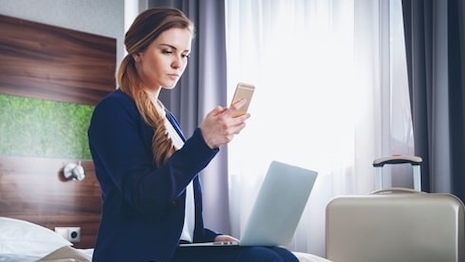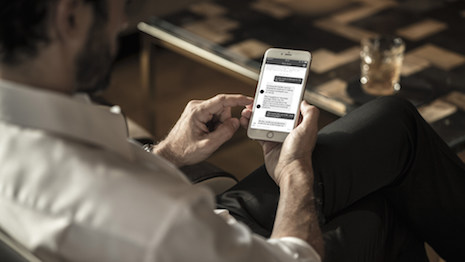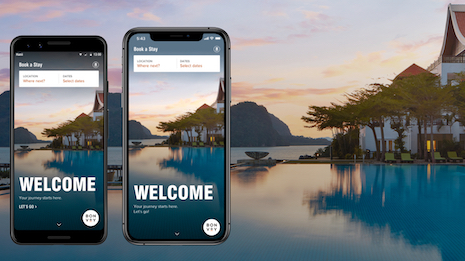 Travelers are more interested in hotel apps than in-room tech. Image credit: Criton
Travelers are more interested in hotel apps than in-room tech. Image credit: Criton
Most of today’s tech-savvy travelers are inclined to use their own smart devices on trips, underscoring that hospitality brands are better off investing in mobile applications rather than in-room devices.
More than 70 percent of travelers are interested in using mobile applications from their favorite hotel brands, according to a new survey from hospitality tech firm Criton. Travelers are also interested in hotel technology that streamlines loyalty programs and the check-in process.
“Today’s traveler is time poor and wants to make the most of every trip, pre, during and post stay,” said Julie Grieve, founder and CEO at Criton, Edinburgh. “Providing guests with the technology they want with all the information they need on their own device not only fulfills their needs, but it also creates a closed marketing group where operators can secure direct and repeat bookings.”
Criton’s findings are based on an online survey of more than 3,600 travelers, including more than 1,300 business travelers.
App wish lists
Although more than half of respondents have at least one hotel app installed on their smartphones, only 36 percent use one on a regular basis.
In contrast, airline and accommodation apps, such as Airbnb, are regularly used by a respective 47 and 62 percent of travelers.
Hotel apps can offer better customer service experiences for guests. Image credit: Four Seasons
More than three-quarters of travelers would use a hotel app if it was offered by their favorite brand, presenting hospitality groups with a valuable opportunity.
By considering consumer feedback about what features should be incorporated in hotel apps, hospitality companies can also provide better customer service experiences.
For instance, nearly 70 percent of respondents believe it is acceptable to wait more than five minutes to check-in at the reception desk. However, 58 percent of travelers are at least likely to use mobile check-in and digital door keys, thereby reducing concerns about wait times.
More than half of respondents, 53 percent, also believe that loyalty programs should be prioritized through hotel technology. Hotel apps can make it easier for travelers to book future stays and accumulate rewards.
Earlier this year, Marriott International gave its recently unified loyalty programs a revamped name. As part of the Bonvoy rebrand, the SPG and Ritz-Carlton Rewards mobile applications are being discontinued in favor of a singular mobile experience (see story).
Travelers were less interested in having electronic devices in their rooms or suites.
Marriott launched a new app for its rebranded loyalty program. Image credit: Marriott
Less than 20 percent of respondents seek an in-room tablet and only 10 percent would be interested in an in-room smartphone. This disconnect may be partially attributed to travelers’ higher familiarity and comfort levels with their personal devices.
By focusing on mobile technology instead in-room smart devices, hospitality brands can also cut installation costs.
“Today’s traveler has their own smartphone, tablet and often laptop, so it is surprising that some hoteliers are still investing hundreds of thousands on in-room technology that the guest isn’t familiar with and has to adapt to,” Ms. Grieve said.
Tech opportunities
Luxury hotel groups are often at the forefront of experimenting with mobile technology to better engage with guests.
Hospitality brand Four Seasons Hotels and Resorts expanded its communication with customers with a rollout for its messaging service.
Four Seasons Chat is now available on WhatsApp, making the chat service available on nine different messaging platforms. Launched just over a year ago, Four Seasons has stated that the chat service has exchanged more than 3.5 million messages (see story).
Leveraging mobile technology is also crucial for hotel groups that want to attract Chinese tourists, especially millennials.
According to a report from Resonance Consultancy, 80 percent of millennial Chinese travelers engage with official WeChat accounts of destinations they visit on an occasional or daily basis. Mobile payment platforms, including WeChat Pay and Alipay, are also commonplace in China and are becoming more expected by tourists going abroad (see story).
“Luxury brands want to deliver the very best experience for their guests,” Criton’s Ms. Grieve said. “The most important advantage that technology delivers is guest choice and that’s at the top of every luxury brand’s wish list.”

